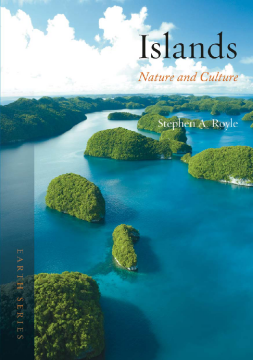
Additional Information
Book Details
Abstract
From Charles Darwin’s enlightening voyage to the Galapagos Islands to moat-encased prisons incarcerating the world’s deadliest prisoners, islands have been sites of immense scientific, political, and creative importance. An inspiration for artists and writers, they can be lively centers of holiday revelry or remote, mysterious spots; places of escape or of exile and imprisonment. In this cultural and scientific history of these alluring, isolated territories, Stephen A. Royle describes the great variety of islands, their economies, and the animals, plants, and people who thrive on them.
Royle shows that despite the view of some islands as earthly paradises, they are often beset by severe limitations in both resources and opportunities. Detailing the population loss many islands have faced in recent years, he considers how islanders have developed their homes into tourist destinations in order to combat economic instability. He also explores their exotic, otherworldly beauty and the ways they have provided both refuge and inspiration for artists, such as Paul Gauguin in Tahiti and George Orwell on the Scottish island of Jura. Filled with illustrations, Islands is a compelling and comprehensive survey of the geographical and cultural aspects of island life.
Stephen A. Royle is professor of island geography in the School of Geography, Archaeology, and Palaeoecology at Queen’s University Belfast. He is a founding member of the International Small Island Studies Association, deputy editor of Island Studies Journal, and the author of numerous books.
